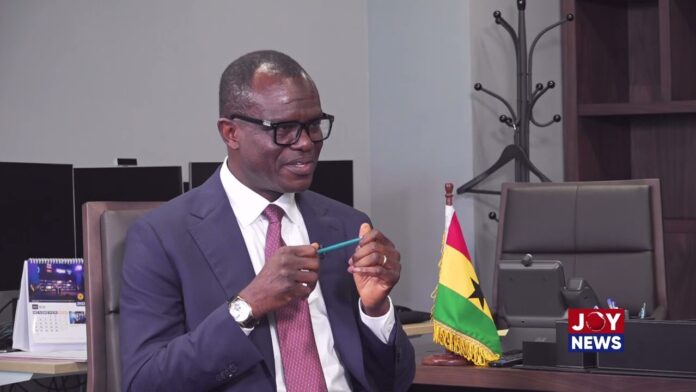The Bank of Ghana expects inflation to trend downwards in the coming months due to the tight monetary policy measures being implemented.
First Deputy Governor of the Bank of Ghana, Dr. Zakari Mumuni, disclosed this at the Ghana Diaspora Investment Forum in Accra.
He said, “Headline inflation is expected to trend further down towards the end-year target of 12%, supported by a tight monetary policy stance.”
Dr. Zakari also highlighted the improved macroeconomic environment that will aid this reduction in the inflation rate in the coming months.
“Macroeconomic fundamentals are projected to improve further to create a business-friendly environment for investors, while growth is projected to remain strong this year,” he added.
Role of Remittances in Reserve Build-up and Cedi’s Stability
The First Deputy Governor stated that remittance inflows have become a critical component of Ghana’s forex build-up. He added that ongoing reforms would tighten foreign exchange rules on remittances to help reduce costs.
“The Bank of Ghana, on its part, has also provided a layer of security and transparency and encouraged the diaspora communities to channel more funds to Ghana,” he assured.
Dr. Zakari Mumuni promised that the Central Bank will continue to promote the development of innovative, diaspora-tailored financial solutions and services to facilitate settlement and investment plans in the country.
Strengthening the Banking Sector to Attract Diaspora Investments
Dr. Mumuni revealed that the necessary measures have been instituted to improve confidence in the banking sector and attract diaspora investments.
According to him, the Central Bank plays a key role in mobilising diaspora capital for development by “offering tailored financial products, leveraging digital financial platforms, and addressing barriers to investment.”
He also announced that the Bank of Ghana will strengthen payment systems to facilitate diaspora investments.
He cited the issuance of various regulations and guidelines to support the payment ecosystem, including the enactment of the comprehensive Payment Systems and Services Act, 2019 (Act 987), which has revitalised the digitalisation agenda.
Innovation and Central Bank Regulations
Dr. Mumuni assured the market that innovation will play a key role in regulating the banking sector, adding, “The Central Bank is looking forward to developing emerging innovations such as digital assets to expand investment options.”
“The Bank has initiated steps to develop guidelines for the regulation of digital credit delivery in Ghana to provide an optimal balance between innovation and financial stability,” he added.



